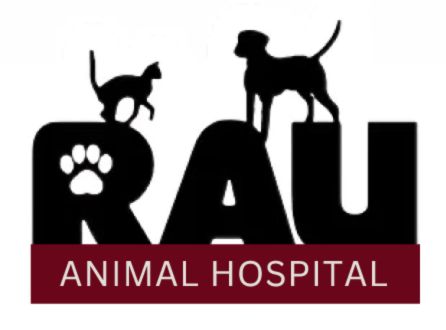
Make The Most Of Your First Visit To The Vet
During your puppy’s first veterinary visit, we will perform a thorough physical exam and gather information from you to help get a complete picture of your puppy's health. This is also your opportunity to gather all of the important puppy care information you need to be an informed, responsible, and loving guardian. Below are some of the topics we will address at the first visit:
- Vaccination plans and schedules
- Puppy illnesses
- Safe treatment options for internal and external parasites
- Spaying or neutering
- Puppy diets
Our veterinarians will take into account factors such as breed, age, lifestyle, and any current health or behavioral issues to make recommendations that will be tailored to your puppy's needs.
Puppy Vaccinations
Puppy vaccinations should occur every 3-4 weeks until 16 weeks of age and continue with booster immunizations throughout adulthood. There are core and non-core vaccinations and your veterinarian can help you decide which vaccinations are right for your canine companion.
It is important to stay current with your puppy's vaccinations. Puppy vaccinations have been medically proven to combat many preventable diseases and illnesses that will occur without proper immunizations. Puppy vaccinations are a huge part of responsible puppy care, and your puppy deserves no less than every chance to be healthy and happy in life.
Signs Of Illness In Puppies
Young puppies are susceptible to illnesses and diseases that can be very serious. This is why puppy vaccinations are so important. However, puppy vaccinations alone will not prevent all illnesses. The key to preventing illness is being diligent in monitoring your puppy's behavior for symptoms. If you observe any of the following symptoms in your puppy, contact us immediately:
- Lack of appetite
- Poor weight gain
- Vomiting
- Swollen or painful abdomen
- Lethargy (tiredness)
- Diarrhea
- Difficulty breathing
- Wheezing or coughing
- Pale gums
- Swollen, red eyes or eye discharge
- Nasal discharge
- Inability to pass urine or stool
Intestinal Parasites, Fleas And Heartworm
All puppies need a regular deworming program which includes medication to kill most intestinal parasites. In addition, we will want to check your puppy’s stool for uncommon but potentially serious parasites. Dogs can also contract heartworm disease. Therefore we recommend heartworm prevention for all of our patients.
One of the most common and annoying parasitic dangers is fleas. A discussion about your pet’s lifestyle and proper flea and tick control is an indispensable component of puppy care. We do not recommend over-the-counter sprays, powders, and collars. They are less effective and more toxic to your pet. Your veterinarian will be happy to discuss an effective flea/tick and overall parasite prevention program.
Feeding Your Puppy
Understanding puppy food is a huge part of responsible puppy care. After all, your puppy's body is growing in ways that will directly impact his or her quality of life for many years to come. It is important that you choose a quality puppy food that has been specifically formulated for young and growing dogs. Always look for a statement from the Association of American Feed Control Officials (AAFCO) that ensures the puppy food you choose meets or exceeds nutritional requirements for growing canine bodies.
Make sure your puppy has fresh and abundant water early in the day to help break down the puppy food, as well as to keep them hydrated. Having a regular feeding and walking schedule will be a tremendous help with potty training. Puppies will begin to learn, understand and enjoy a scheduled routine.
When Should You Spay Or Neuter Your Puppy
We recommend spaying or neutering at approximately 6 months of age. However, among certain breeds, some studies have proven that waiting even longer may be the most optimal to avoid certain cancers. Our veterinarians will review this information with you and discuss which breeds may want to consider an alternate plan.
The American Veterinary Medical Association supports early spaying and neutering. In general, puppies recover faster than adult dogs. Therefore, it is an easier surgery for them and one that reduces the rate of disease later in life. Delaying this procedure past sexual maturity can lead to increased incidences of mammary tumors in females, and testicular cancer in males.
